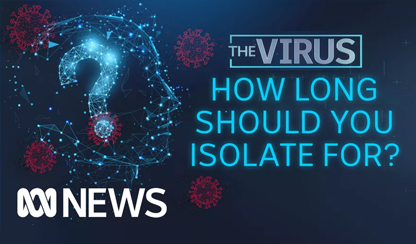08 February 2019
Melbourne-based researchers say they’ve discovered an entirely new avenue to fight cancer, which in the laboratory seems to work on a whole range of different tumour types.
But the early-stage research does not come from cancer scientists.
Instead, it is led by a team who have spent the last 10 years trying to bust the blood clots that cause strokes and heart attacks.
They had developed an antibody that seeks out those clots by hunting for platelet cells – the cells in the blood that allow it to clot when you cut your finger.
t turns out tumour cells love those platelets, and are covered in them.
That means, the team serendipitously discovered, their antibody sticks to tumours, too.
Add fluorescent molecules to the antibody and you can spot cancer anywhere in a person’s body. Add chemotherapy chemicals to them, and you may have a powerful and entirely new weapon to fight cancer.
"It’s totally outside of normal cancer research. People are fixated on the cancer cell itself. The role of the platelets as a diagnostic tool has not been looked at so far – that’s what makes this story so interesting," says Professor Karlheinz Peter, a heart researcher at the Baker Institute who led the team.
Their research, published on Friday in Theranostics, shows the antibody therapy has successfully identified every cancer they have tried it on so far in the lab – 12 all up.
"It looks like it’s probably the vast majority of cancers where it would work," Professor Peter says.
The team took the research a step further and combined the antibodies with chemotherapy molecules. In tests on three different types of cancer, the new therapy successfully targeted and killed them.
The fact platelets stick to many different types of cancer is important.
The best new cancer drugs, such as immunotherapy, work because they are capable of selectively finding specific markers on tumour cells before delivering their payloads.
But many cancers don’t have these specific markers, making treatment difficult; these are often the most fatal cancers. If the platelets stick to many different cancers, Professor Peter’s antibody could be a broad-spectrum cancer buster.
The left-field discovery was described as “funky” by Dr Vivien Chen, one of the few scientists in Australia who studies both platelets and cancer at the ANZAC Research Institute in Sydney.
“It’s very promising. It’s not going to be given to cancer patients tomorrow. But it’s really cool science, it’s lovely."
Dr Chen was not involved in the research.
The link between cancers and platelets has long been known.
Because of their role in repairing wounds, platelets carry a swag of molecules vital for tissue growth. That makes them attractive targets for tumours, which grab those platelets out of the blood and use their buffet of chemicals to fuel explosive growth.
And platelet-targeting cancer therapies have been tried before.
But most of the work has focused on trying to cut off tumours' platelet supply – a method that has shown promise in the lab in slowing tumour growth.
Aspirin, which blocks platelets from clotting, has even been tried as a cancer medication, with dramatic but controversial results.
We have even tried platelets as carriers for anti-tumour drugs, but that has not worked either. And doctors have always worried blocking platelets from doing their job in cancer patients could lead to lethal internal bleeding.
But nobody has yet tried using platelets as a marker to target therapies.
Professor Peter’s antibodies face similar hurdles to those other failed drugs. His team will need to show they can be used safely in people – and that they don’t attack hidden blood clots.
— Original article, The Age, 8 February 2019
Stay on top of the latest findings with our newsletter
Subscribe




